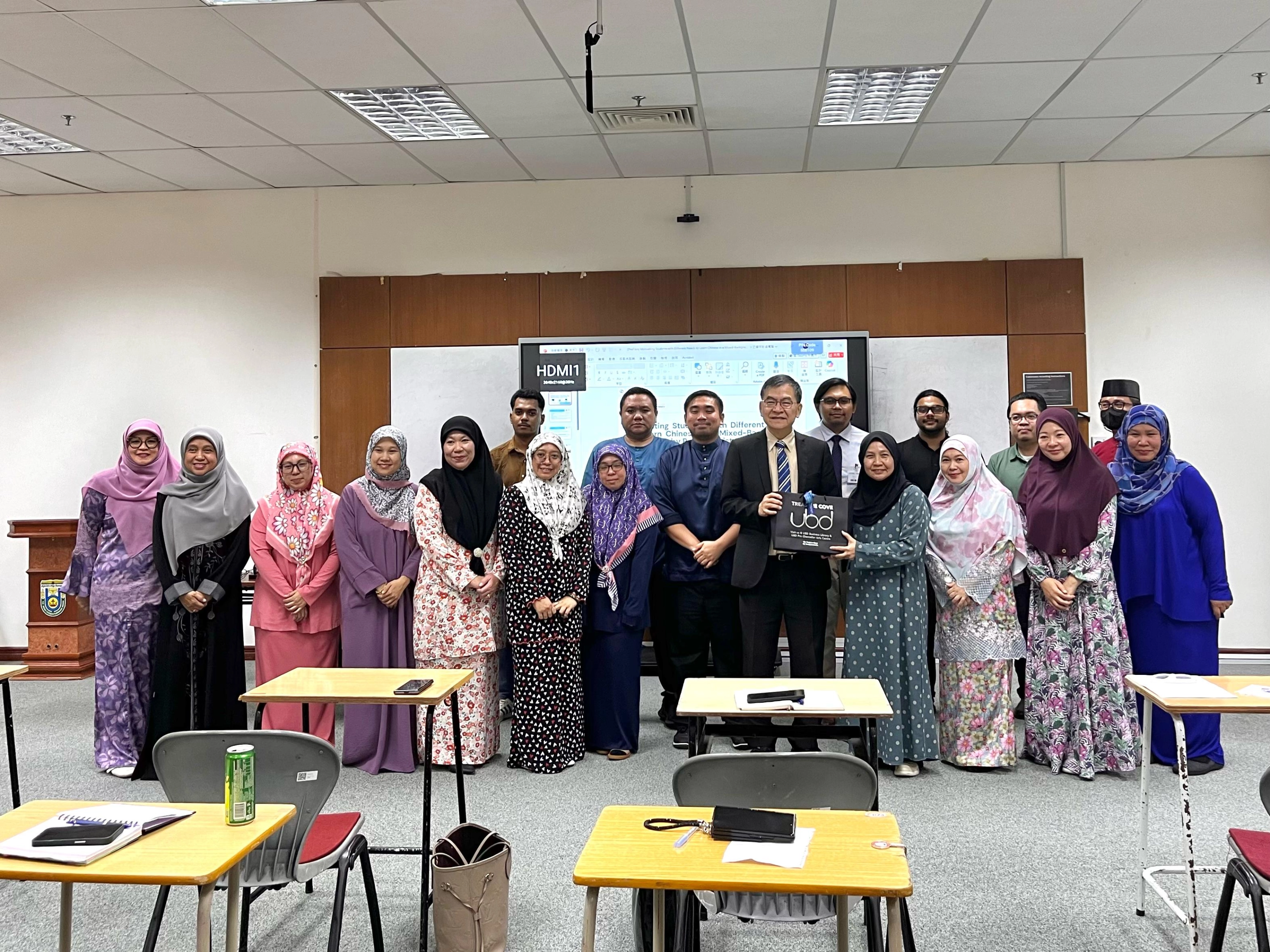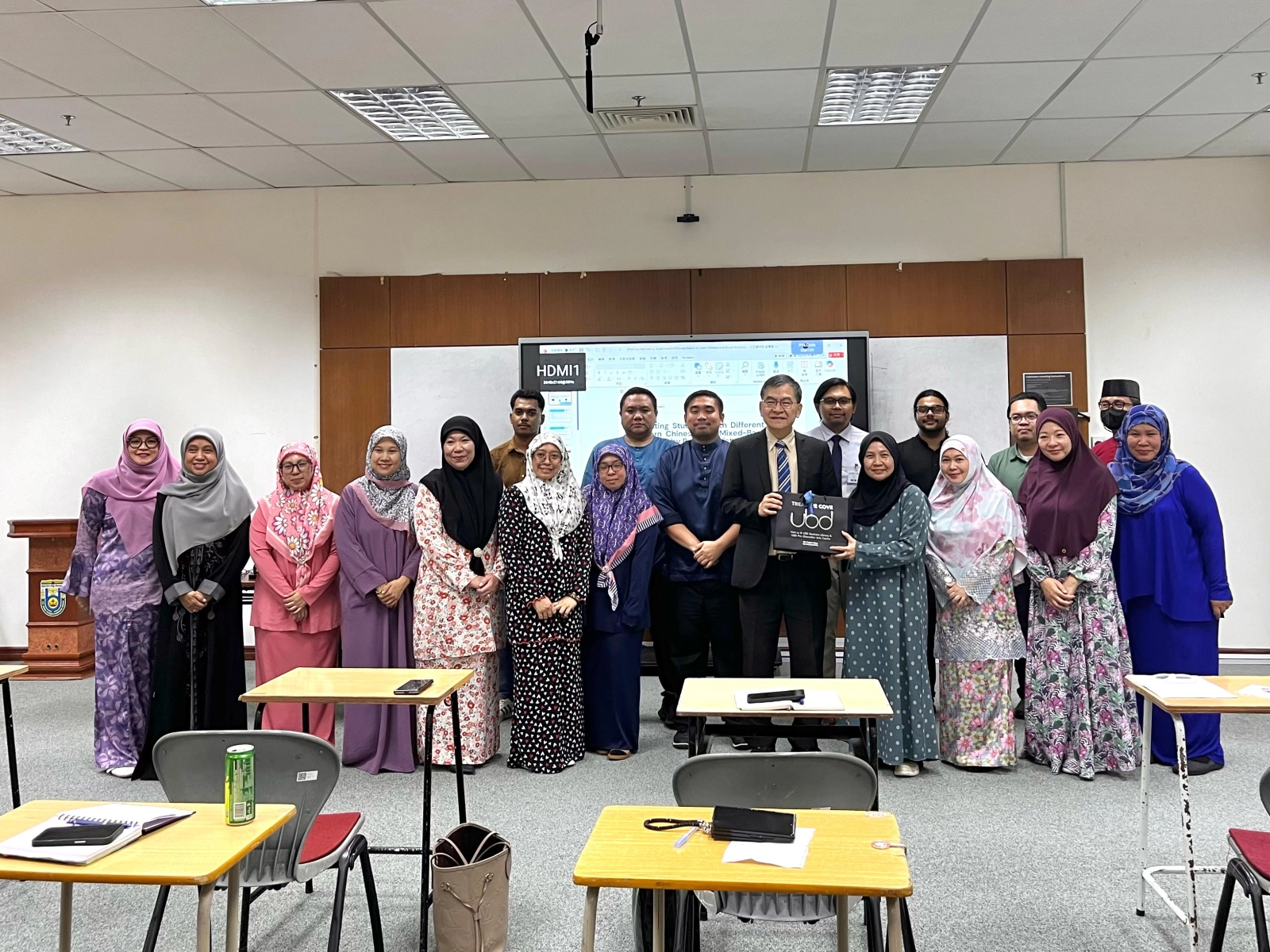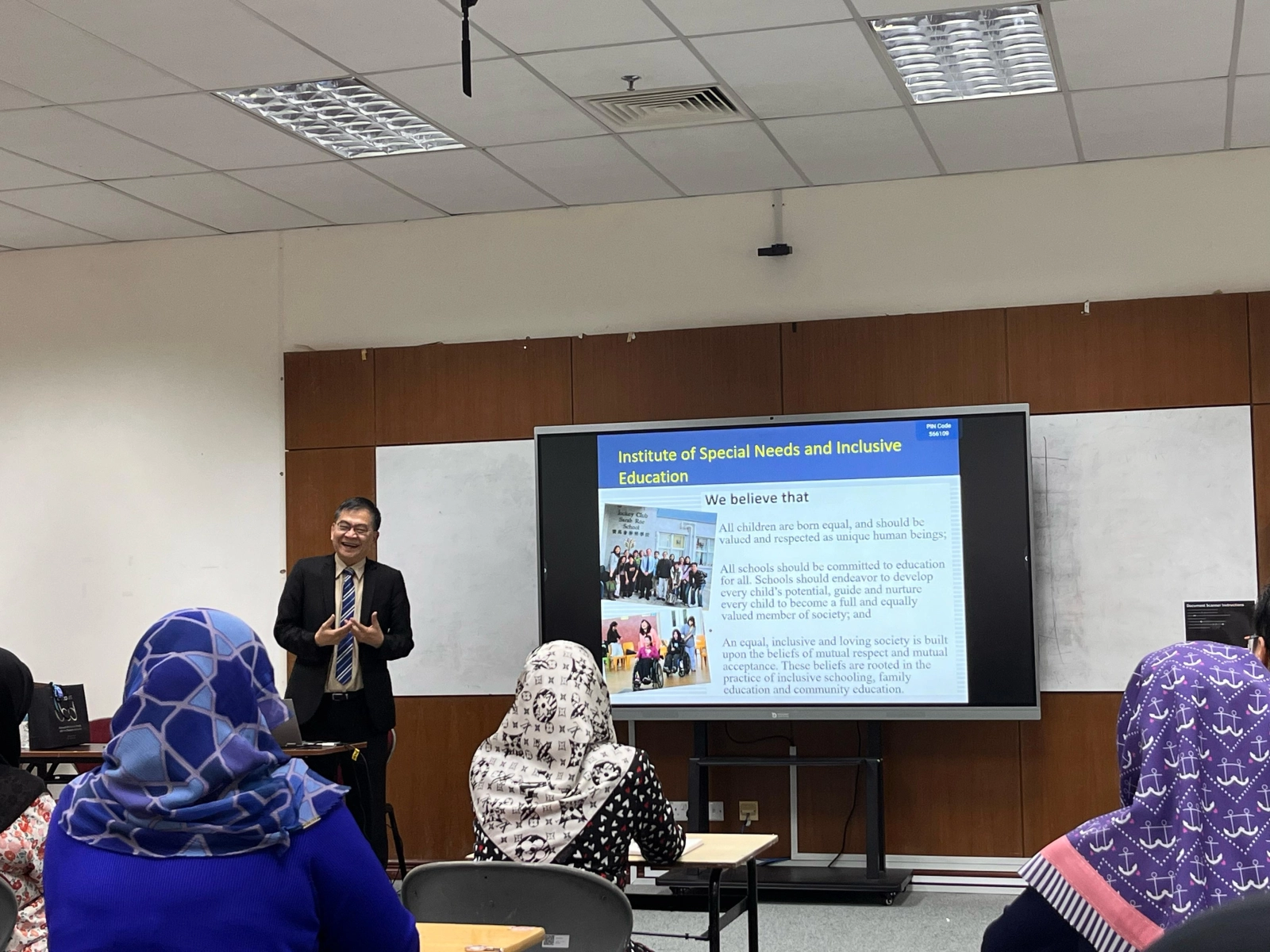InTELECT, C3L & SHBIE I Seminar – Exploring the Impact of Robot Interaction on Learning Engagement: A Comparative Study of Two Multi-Modal Robot

The Centre for Lifelong Learning (C3L UBD) and Sultan Hassanal Bolkiah Institute of Education in collaboration with the Innovation in Teaching and Learning Centre (InTELECT) organised the following seminar titled Exploring the Impact of Robot Interaction on Learning Engagement: A Comparative Study of Two Multi-Modal Robot.
Professor Kenneth Sin, MH, is the Executive Director of the Institute of Special Needs and Inclusive Education and the Research Professor in the Department of Special Education and Counselling at The Education University of Hong Kong in Hong Kong. His expertise and research focus on supporting students with special educational needs and professional development in inclusion. He takes part in many community activities, in relation to special needs and inclusion. He was invited to be the member/ chairman in the Incorporated Management Committees for special schools and mainstreaming school, members in the task groups for giftedness, inclusion, special needs, rehabilitation and child welfare in Education Bureau, Curriculum Development Institute, Hong Kong Examination Assessment and Authority and Social Welfare Department. He is also appointed as the executive members, committee members or chairs in many NGOs for serving kids with special educational needs, persons with visual impairment, hearing impairment, intellectual disabilities, autism and behavioral difficulties. In 2017, 2018, 2019, 2020 and 2022, he received Awards, including the President’s Awards for Outstanding Performance in Knowledge Transfer (Individual), Teaching (Individual), Knowledge Transfer (Team) and Administrative Services (Individual) by EdUHK. In 2021, Prof. Sin is awarded the Medal of Honor by Hong Kong SAR, China, in recognition of his achievement in developing special education, particularly his contribution to enhancing special education training for teachers.
Currently, he is serving as a Visiting Professor at the Centre for Lifelong Learning, Universiti Brunei Darussalam, and is working in close partnership with SHBIE to strengthen teacher training in inclusive education.
In recent years, there has been a growing interest in using robots within educational environments due to their potential to augment student engagement and motivation. However, current research has not adequately addressed the effectiveness of these robots in facilitating inclusive learning for diverse student populations, particularly those with dyslexia. This study proposes an inclusive learning system developed on two multi-modal robots, Kebbi and Minibo, with interactive (i.e., movable hands) and straightforward features. The system integrates various interactive elements, such as animations, songs, dance, gestures, and touch, to enhance students’ learning engagement, interaction, and motivation and cater to their diverse needs. The study aims to examine the influence of different features from two unique multi-modal robots on the engagement levels of students with/without dyslexia and their needs when engaging with robot learning. Two research questions are posed: (1) What are the features of multi-modal robots that could effectively improve the learning engagements of students with/without dyslexia? (2) What are the needs of students with/without dyslexia when engaging with robot learning? To this end, a comparative study is conducted where 64 students participate in a five-day robot-led training program, while another 73 students receive traditional teacher-led training. Pre/post questionnaires are administered to evaluate students’ engagement levels, and semi-structured interviews are conducted to obtain additional insights. The findings reveal that students with dyslexia are better suited to the interactive and multi-modal features of Kebbi. In contrast, students without dyslexia may prefer the more straightforward features of Minibo, which can still effectively promote engagement and learning. Multi-modal robots can boost engagement and motivation in students with and without dyslexia through novelty and cognitive load management. Emotional connections and interactive elements, such as empathetic and customizable features, enhance engagement and improve learning outcome

